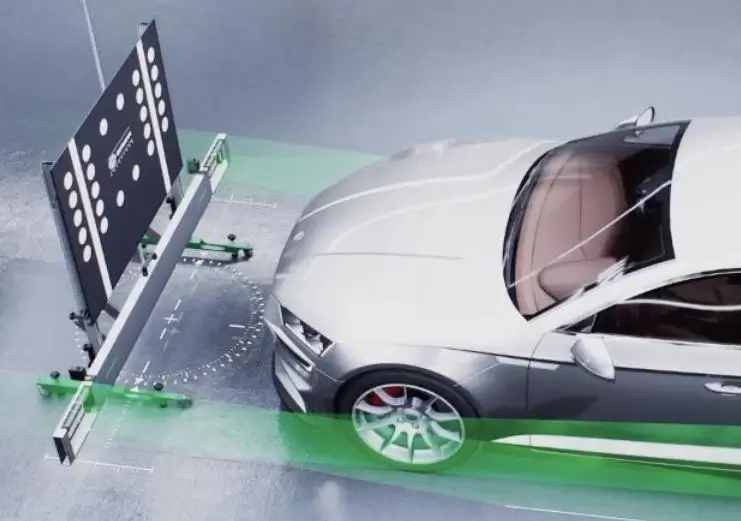Why you should never sign a windshield calibration waiver
Signing a windshield calibration waiver is not in your best interests
Some glass replacement shops don’t have calibration equipment or don’t want to lose your glass replacement business by adding in the cost of the calibration. So they give you a lower price and ask you to sign a windshield calibration waiver. Don’t do it!
A windshield calibration waiver is designed to protect the shop, not you
Glass shop owners think the waiver relieves them of liability. They can certainly argue that in court. But most legal authorities believe the waiver isn’t worth the paper it’s printed on. Here’s why.
First, current industry best practices are to perform a calibration on vehicles with ADAS systems that require a calibration after windshield replacement. Every glass installer should know this. The fact that they’re presenting you with a waiver means they know the calibration should be done, yet they’re trying to avoid doing it. Presenting the waiver for you to sign is proof in a courtroom that the shop knew the risks and understood the potential liability and willfully tried to avoid that liability by transferring it to you.
Signing a windshield calibration waiver implicates you
The very act of signing the waiver means that you understand that you should have had the calibration done, that you opted not to have your vehicle calibrated and that you agree never to sue the shop in case you get sued. The savings? Perhaps $200. The risk? Hundreds of thousands if you injure someone in an accident that could have been avoided had you paid for the calibration so your accident avoidance system would have worked properly
The only possible way to avoid liability here is if the waiver states; “Despite carmaker recommendations to calibrate ADAS systems after a windshield replacement, this shop has assured me that such a calibration is unnecessary and that the ADAS systems will work as intended without the calibration.” Of course no shop’s windshield calibration waiver would ever say that.
Why you need a calibration
If your vehicle is equipped with ADAS and has a camera for accident avoidance and lane departure or lane centering and you’re had your windshield replaced, the camera must be re-calibrated even if the technician didn’t touch the camera.
The most up-to-date glass repair shops have all the equipment necessary to perform an windshield calibration after repair. But calibration isn’t free. If you don’t have glass insurance, that calibration cost comes right out of your pocket.
To gain business, some unscrupulous shops offer windshield replacement without calibration. Since they know this is wrong, and to prevent a lawsuit, they ask you to sign a waiver holding them harmless if you ever get into an accident where the ADAS systems don’t perform as intended. You may think you’re saving money, but by signing that waiver, you take on huge legal liability.
Here’s why you should pay out of pocket, if you have to, to get your windshield calibration performed

A static calibration must be performed on a level floor with the vehicle located perfectly perpendicular to the visual target.
Safety Concerns: ADAS systems are crucial for vehicle safety and can significantly reduce the risk of accidents. If these systems are not recalibrated correctly after a windshield replacement, they may not function as intended, potentially jeopardizing your safety and that of others on the road.
Legal Responsibility: Signing a calibration waiver may possibly relieve the repair shop or insurer of any legal responsibility for improper calibration. If an accident occurs due to malfunctioning ADAS, you may have a difficult time pursuing compensation or holding them accountable.
Warranty Implications: Many vehicles come with warranties that cover specific components, including ADAS systems. Signing a waiver could potentially void these warranties, leaving you responsible for costly repairs or replacements if the systems fail.
Potential Liability: If your vehicle is involved in an accident where the ADAS systems’ malfunction is a contributing factor, you could be held liable for damages or injuries. Signing a calibration waiver may weaken your legal position in such cases.
Professional Responsibility: It’s the responsibility of the repair shop to ensure that the windshield replacement is done correctly and that ADAS systems are recalibrated accurately. Signing a waiver may discourage the shop from taking this responsibility seriously.
Unknown Future Costs: If your ADAS systems fail or require costly repairs due to improper calibration, you may end up paying for these expenses out of pocket, even if the fault lies with the repair shop or insurer.
Insurance Premiums: If your ADAS systems are not functioning correctly due to no calibration or an improper calibration, it could lead to accidents or increased risk, potentially resulting in higher insurance premiums for you. In fact, your car insurance policy may contain discounts for these safety features and not maintaining the systems with required calibration can possibly result in termination, decreased coverage, or a chargeback.
Bottom line on windshield calibration waivers
In summary, signing a windshield calibration waiver can have serious implications for your safety, legal protection, and financial well-being. It’s essential to thoroughly consider the risks and potential consequences before agreeing to such a waiver and to ensure that your ADAS systems are properly calibrated after windshield replacement.
©, 2023 Rick Muscoplat
Posted on by Rick Muscoplat